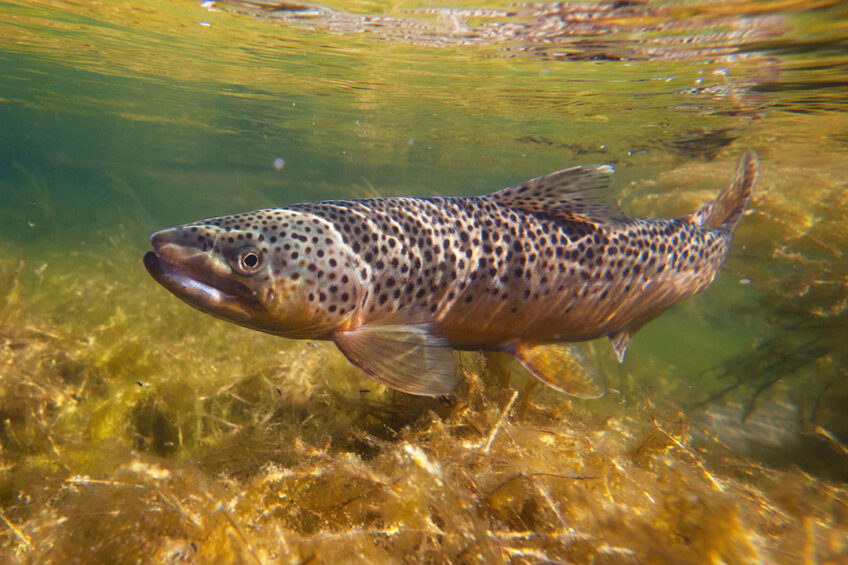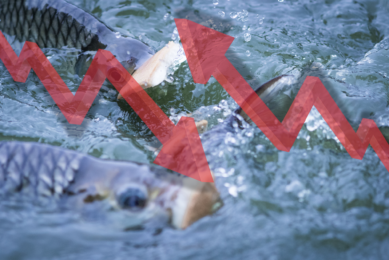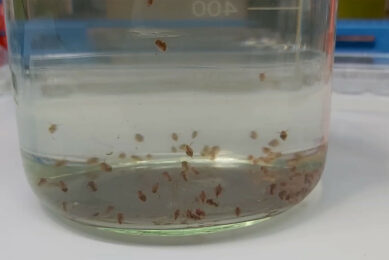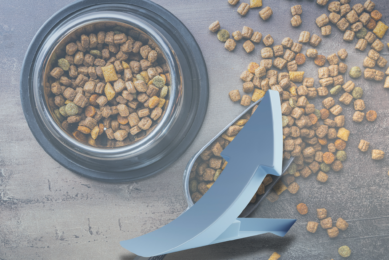Tryptophan improves intestinal function in trout

Adding 5 grams of tryptophan per 1 kg of feed looks promising in enhancing the immune response of the trout, boosting fish growth and survival rate, new research showed.
A group of scientists from the Peoples’ Friendship University of Russia, Moscow, has discovered that feeding tryptophane can effectively counter the negative effect of the high density of fish at farms and increase the fish body’s resistance to oxidative stress.
For the experiment, scientists picked up rainbow trout Oncorhynchus mykiss, which is common in European fish farms. Trout were divided into groups with stocking densities of 15 kg/m3 and 25 kg/m3. Each of these groups were further divided into 3, with each subgroup receiving a different diet.
- The first subgroup served as the control, with no amino acids added to the feed.
- The second subgroup received an additional 5g of tryptophane, and
- The third subgroup received 10g of tryptophane per kilogram of feed.
Following a 70-day trial, laboratory studies indicated an improved resistance to oxidative stress in the trout’s intestines of the test groups.
Bad living conditions
The researchers indicated that fish experience more stress than in natural conditions. Overcrowding, transportation, illness, and poor-quality water negatively affect the trout’s body, often leading to illness and death. The researchers believe feed tryptophane can be an effective tool in tackling the negative impact of these factors.
Morteza Yousefi, Associate Professor of the Department of Veterinary Medicine at Peoples’ Friendship University University, said that based on the trial results, 5 grams of tryptophane was found to be the most effective inclusion level.
He stated: “The addition of 5 grams of tryptophan per 1 kg of feed increased the immune response of the trout intestines. Due to this, oxidative stress was reduced at high stocking densities. At the same time, a large addition of tryptophan weakens the immune response to stressful conditions. This can be detrimental to the health of the fish.”
Better immune response
In fish that lived at a density of 25 kg of fish per m3 and consumed feed with 5 grams of tryptophan, enzymes and genes that are responsible for the antioxidant response were 1.5-2 times more active. On the other hand, in fish living at a density of 15 kg/m3 the additive did not cause significant changes compared to the control group, the scientists said.
While a better immune response is a positive sign, it’s important to note that additional studies are needed to fully understand and validate the long-term impact of tryptophan on trout health and survival.











